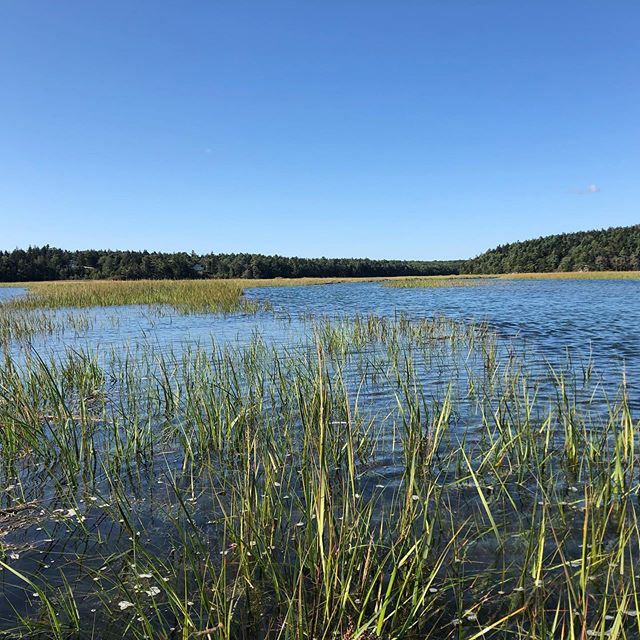Visiting
Updates:
Please consider checking the status of our parking lot at bmmparking.com before making your trip. Once our parking lot is full, we turn away additional vehicles as part of our management strategy.
Also, before you hike, check the tide chart for Fort Popham at US Harbors. The road across the marsh at BMMCA can flood on tidal heights of 9.5′ and greater. We typically plan for there to be water on the road approximately an hour before and an hour after the time of high tide.
We recommend that visitors to the Bates Morse Mountain Conservation Area wear at least one article of blaze orange clothing during firearms deer hunting season, which runs November 2 – December 14, 2024.

In order to preserve the natural communities of the Bates Morse Mountain conservation area and promote research activities, we ask that visitors respect the following guidelines.
- Access is during daylight hours only. When the parking lot is full, additional cars will be turned away. There is no additional parking in the area. During the summer months, the parking lot is often full by 10 AM. Please plan your trip accordingly.
- Enter on foot only. The only vehicles allowed are those of researchers, residents, staff, or services.
- Bathroom facilities are limited on site. Nearby public beaches provide these amenities: Head Beach at Small Point – 2 miles south on Route 216; Popham Beach State Park on Route 209.
- Leave no trace. Carry out everything that you carry in.
- Dogs are not allowed. No dogs (or other domestic pets) are allowed in any season.
- Fires and camping are prohibited.
- Do not bring: Beach umbrellas, cabanas, radios and similar appliances, balls, kites, or bicycles.
- Stay on the road and the hard beach surface. Do not climb on the rocks and ledges, or go into the back beach or dunes to protect fragile natural communities.
- Respect ongoing research. Please do not disturb or remove markers, plants, or animals.
- Protect the piping plovers and least terns. These birds nest and raise young on the beach sand. If nesting birds are disturbed, they may abandon their eggs or chicks. Please stay on the road or hard beach surface, away from marked nesting areas, and away from any birds showing protective behavior.
- Please do not go past the red pole on the beach. The pole is at the dune edge, about a half-mile west (to the right) of the beach entrance.
Driving Directions:
Bates Morse Mountain Conservation Area